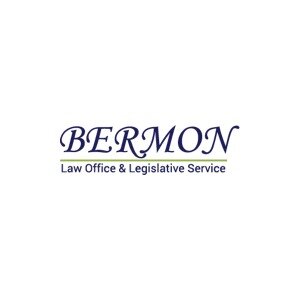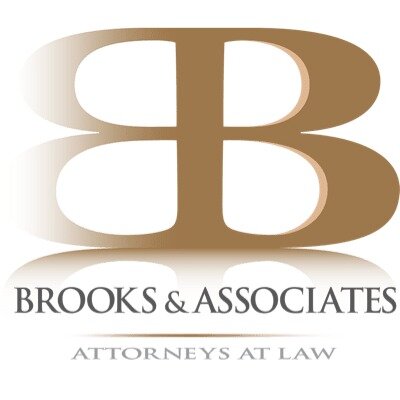Best Renewable & Alternative Energy Lawyers in Philipsburg
Share your needs with us, get contacted by law firms.
Free. Takes 2 min.
List of the best lawyers in Philipsburg, Sint Maarten
About Renewable & Alternative Energy Law in Philipsburg, Sint Maarten
Renewable and alternative energy is increasingly becoming a priority in Philipsburg, Sint Maarten as the country seeks to diversify its energy supply, reduce dependence on fossil fuels, and mitigate environmental impacts. Renewable energy refers to energy derived from resources that are naturally replenished, such as solar, wind, and ocean energy. Alternative energy often encompasses renewable sources, as well as other non-fossil fuel options that may include cleaner technology.
The legal landscape in Philipsburg is in transition as the government works to modernize laws and encourage the adoption of renewable energy solutions. The focus includes incentives for solar panel installation, streamlined processes for grid interconnection, and evolving environmental and construction guidelines for energy projects. With evolving regulations, both residents and businesses considering renewable solutions must navigate an emerging legal framework designed to support sustainability while maintaining safety, reliability, and fair access.
Why You May Need a Lawyer
There are several situations where seeking legal advice related to renewable and alternative energy can be essential in Philipsburg. Here are common scenarios:
- Understanding and complying with permits and regulations for installing solar panels or wind turbines on your property
- Drafting, reviewing, or negotiating agreements with energy suppliers, installers, or contractors
- Addressing disputes with neighbors, utility providers, or regulatory bodies about energy infrastructure, property boundaries, or access rights
- Applying for government incentives, grants, or tax credits for renewable energy investments
- Ensuring compliance with construction, zoning, and environmental standards for new energy projects
- Protecting intellectual property related to innovative alternative energy technology
Local Laws Overview
Renewable and alternative energy laws in Philipsburg are shaped by both local ordinances and national policies of Sint Maarten, with guidance from international sustainability commitments. Key features include:
- Permitting and Licenses: Installation of renewable energy systems typically requires permits from local authorities, especially for grid-connected systems or those impacting public spaces.
- Construction and Zoning: Renewable installations must comply with building codes and zoning restrictions, including safety setbacks and structural standards.
- Grid Interconnection: Connecting renewable systems to the local utility network requires compliance with technical standards set by the local utility provider, including application processes and possible inspections.
- Incentives and Funding: Government or utility incentives may be available for renewable installations, but require meeting specific qualifications and documentation requirements.
- Environmental Impact: Larger projects may be subject to environmental assessments to ensure minimal ecological disruption.
- Net Metering Policies: While still developing, there is movement towards allowing private producers to sell surplus power back to the grid.
Frequently Asked Questions
What types of renewable energy are most common in Philipsburg?
Solar energy is the most widely adopted, thanks to the island’s favorable sunlight. Interest in wind and tidal energy is growing, but less common at present.
Do I need a permit to install solar panels on my roof?
Yes, most installations require approval from the relevant local authority to ensure compliance with safety and construction standards.
Can I sell excess electricity generated from my solar panels back to the grid?
Net metering policies are in development, so it is important to consult with the local utility and a lawyer to understand current regulations regarding the sale of excess power.
What government incentives exist for renewable energy projects?
Incentive programs are evolving and may include tax reductions, grants, or rebates for qualifying projects. Legal counsel can help you identify which benefits you are eligible for.
Are there restrictions on the size of renewable systems I can install?
Yes, local regulations and zoning laws may limit the size, placement, and capacity of renewable energy systems on residential or commercial properties.
Who is responsible for maintenance and safety inspections?
System owners are responsible, but regular inspections may be required by the municipality or utility company, especially for larger or grid-connected installations.
What happens if my renewable energy installation affects my neighbors?
You may be liable for issues such as glare, noise, or structural encroachment. Legal advice can help you avoid or resolve disputes.
How does renewable energy affect my property value?
Properly permitted and professionally installed renewable systems often increase property value, but unapproved installations may cause complications during a property sale.
What should I look for in a contract with an energy provider or installer?
Ensure the contract includes clear terms on costs, timelines, warranties, maintenance, and what happens if things go wrong. Legal review can help you identify risks.
What are the penalties for non-compliance with energy regulations?
Penalties may include fines, orders to remove non-compliant systems, or denial of grid connection. It is crucial to ensure your project is fully compliant before proceeding.
Additional Resources
For those seeking more information or assistance, the following organizations and authorities are valuable resources:
- Government of Sint Maarten - Department of Infrastructure and Energy
- Utilities providers in Sint Maarten (such as GEBE NV)
- Department of Permits and Licenses in Philipsburg
- Chamber of Commerce and Industry Sint Maarten
- Local environmental and renewable energy advocacy organizations
Next Steps
If you are considering a renewable or alternative energy project, or are facing a legal question in this area, these steps can help you proceed smoothly:
- Clearly define your project or legal question
- Gather all relevant documents, such as property deeds, previous permits, contracts, or technical specifications
- Contact the appropriate local authorities or organizations to clarify current regulations and requirements
- Consult with a lawyer who specializes in renewable and alternative energy law or property law in Philipsburg
- Review your contracts and agreements with professional guidance before signing
- Stay informed about changes in local regulations and available incentives
Legal guidance is key to successfully navigating the developing renewable energy sector in Philipsburg, Sint Maarten. Engaging early with professionals and regulatory authorities will help ensure your project complies with the law and achieves your sustainability goals.
Lawzana helps you find the best lawyers and law firms in Philipsburg through a curated and pre-screened list of qualified legal professionals. Our platform offers rankings and detailed profiles of attorneys and law firms, allowing you to compare based on practice areas, including Renewable & Alternative Energy, experience, and client feedback.
Each profile includes a description of the firm's areas of practice, client reviews, team members and partners, year of establishment, spoken languages, office locations, contact information, social media presence, and any published articles or resources. Most firms on our platform speak English and are experienced in both local and international legal matters.
Get a quote from top-rated law firms in Philipsburg, Sint Maarten — quickly, securely, and without unnecessary hassle.
Disclaimer:
The information provided on this page is for general informational purposes only and does not constitute legal advice. While we strive to ensure the accuracy and relevance of the content, legal information may change over time, and interpretations of the law can vary. You should always consult with a qualified legal professional for advice specific to your situation.
We disclaim all liability for actions taken or not taken based on the content of this page. If you believe any information is incorrect or outdated, please contact us, and we will review and update it where appropriate.












